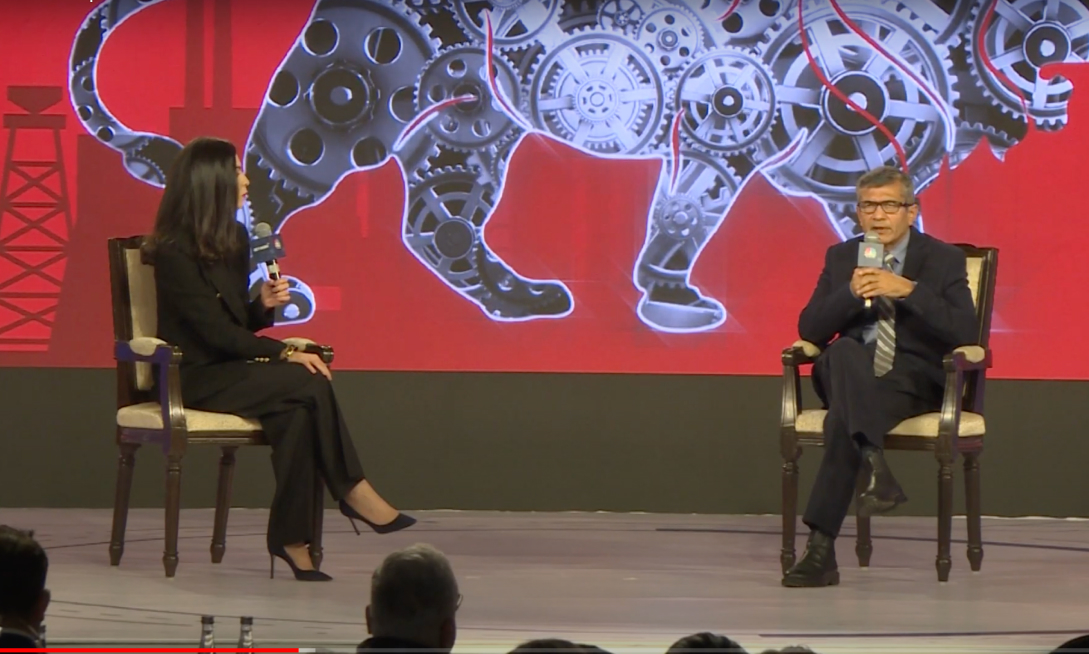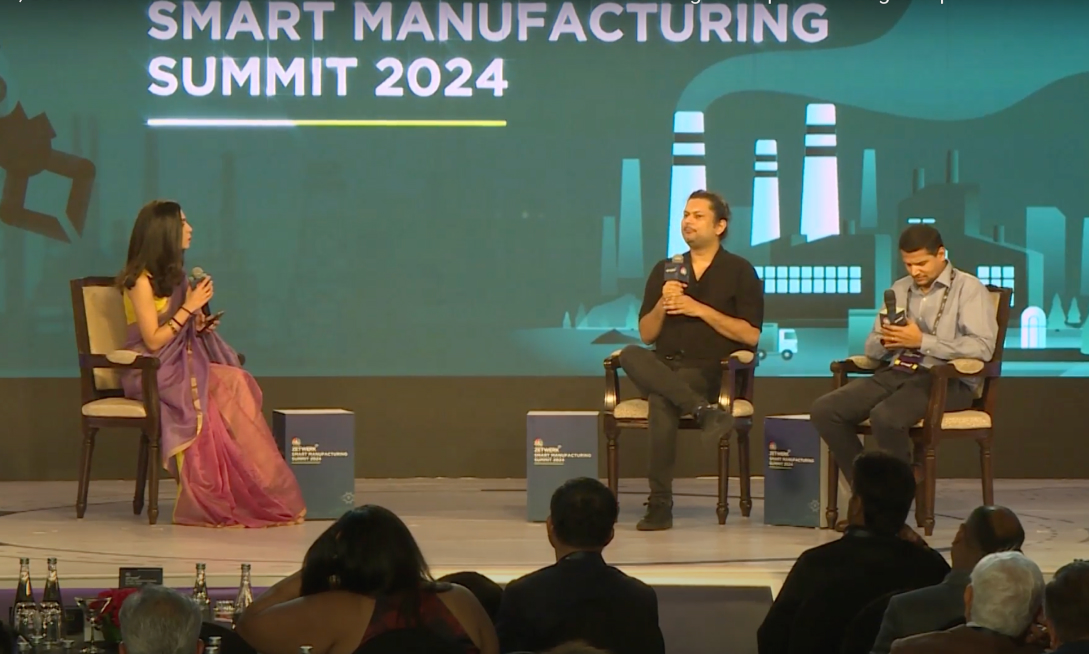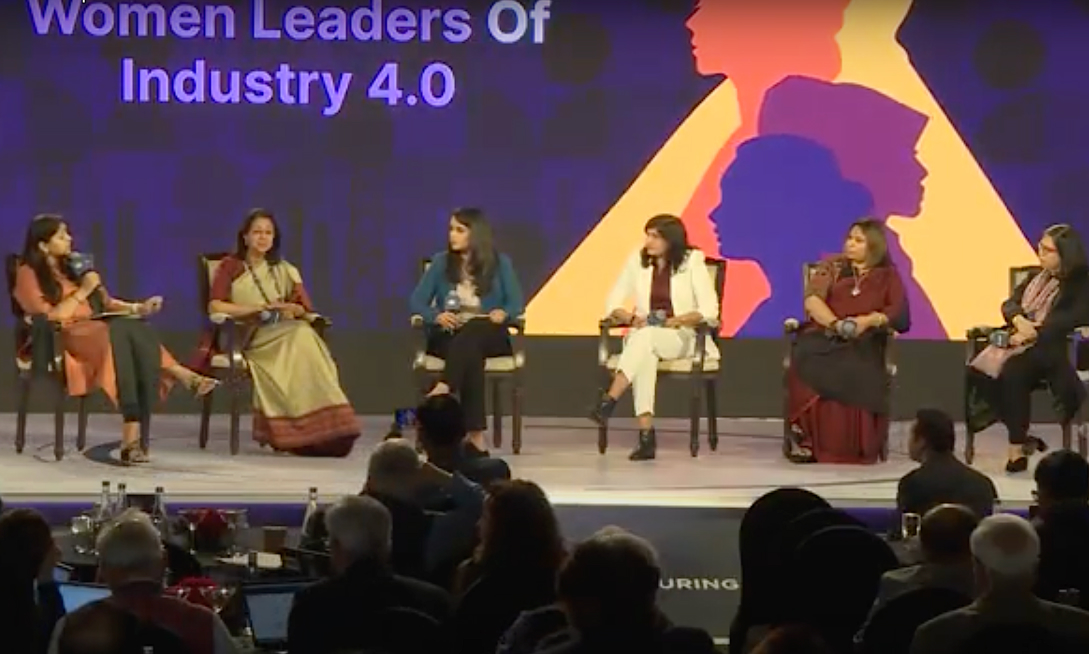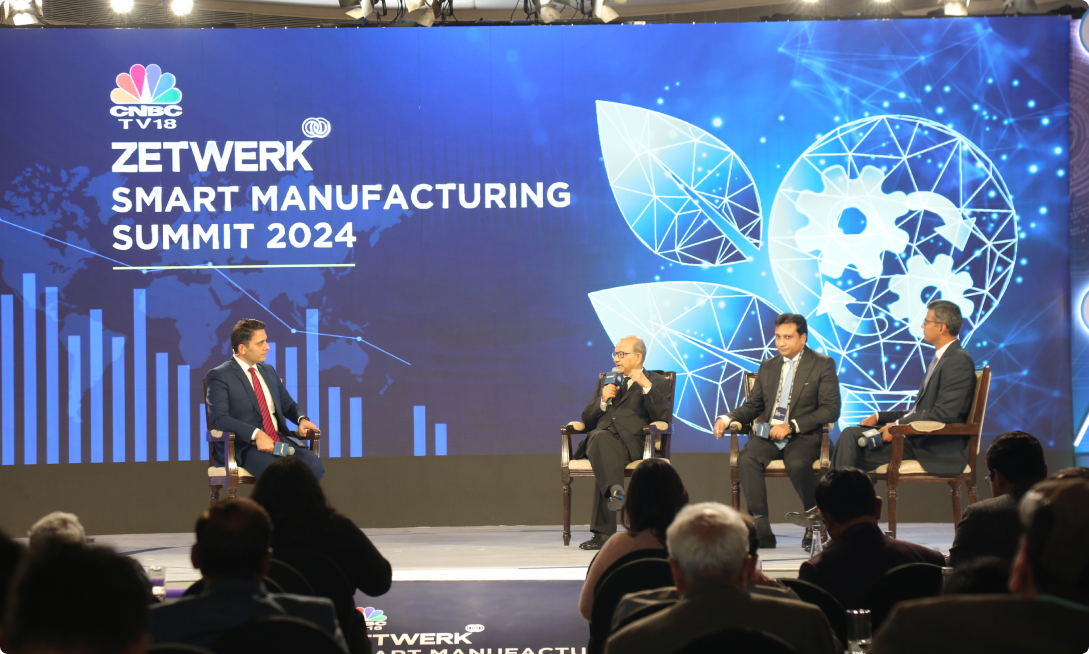Navigating Make in India: A Comprehensive Review and Roadmap for the Future

Insights from the DPIIT Secretary’s Dialogue at ZETWERK Smart Manufacturing Summit 2024
The Managing Editor of CNBC-TV18, Ms. Shereen Bhan, engaged in a detailed conversation with Mr. Rajesh K Singh, the Secretary of DPIIT (Department for Promotion of Industry and Internal Trade) at the ZETWERK Smart Manufacturing Summit 2024, exploring the performance and prospects of the “Make in India” initiative over the past decade. In this in-depth analysis, we look at the takeaways from their dialogue and the strategic roadmap outlined by Mr. Singh for the future of manufacturing in India.
Decade of Make in India: A Retrospective
The “Make in India” initiative, launched in 2014, aimed to foster a conducive environment for business, boost manufacturing, and enhance India’s global competitiveness. Mr. Singh highlighted pivotal initiatives like the “Vocal for Local” campaign, ease of doing business rankings for states, logistics improvements, and liberalization of FDI policies as foundational pillars of this journey.
Assessment of Performance
Mr. Singh assessed the performance of the Production-Linked Incentive (PLI) schemes, indicating significant achievements in sectors like electronics, mobile manufacturing, food processing, white goods, and pharmaceuticals. However, sectors like textiles and steel require further enhancements and flexibility to meet initial targets.
Future Prospects and Policy Focus
Looking ahead, Mr. Singh emphasized the need for sustained growth and outlined key focus areas:
- FDI Liberalization: The DPIIT aims to make FDI policies more liberal, potentially making them 100% automatic across sectors to attract more investments.
- Ease of Doing Business: Addressing challenges in contract compliances and property titles, especially in digitizing land records and streamlining judicial processes, remains a priority.
- Export Orientation: Aligning policies to encourage manufacturing for both domestic consumption and exports, focusing on reducing tariff barriers, especially in sectors where India faces stiff competition from countries like Vietnam.
- Quality Control and Compliance: Strengthening quality control norms and compliance mechanisms, particularly in emerging sectors like fintech and electric vehicles, to foster consumer trust and global competitiveness.
- Start-up Ecosystem: Encouraging innovation and prudent financial management within the start-up ecosystem, ensuring a balance between risk-taking and compliance.
Challenges and Opportunities
The conversation also touched on challenges such as geopolitical factors impacting FDI, complexities in regulatory compliance for fintech, and the evolving landscape of electric vehicles. Mr. Singh acknowledged the need for nuanced policies and balancing domestic manufacturing with global competitiveness.
Post-Election Roadmap
With an upcoming election, Mr. Singh hinted at a potential surge in policy reforms post-election, focusing on continuity with increased scale and speed. He underscored the importance of collaborative efforts between central and state governments, industry stakeholders, and regulatory bodies to drive sustainable growth in manufacturing and exports.
Conclusion
As India navigates the evolving dynamics of global trade, technological advancements, and geopolitical shifts, the Make in India initiative stands poised for transformative growth. The insights shared by Mr. Singh provide a roadmap for policymakers, businesses, and investors, emphasizing the need for agility, innovation, and strategic policy interventions to realize India’s vision of becoming a global manufacturing hub.







